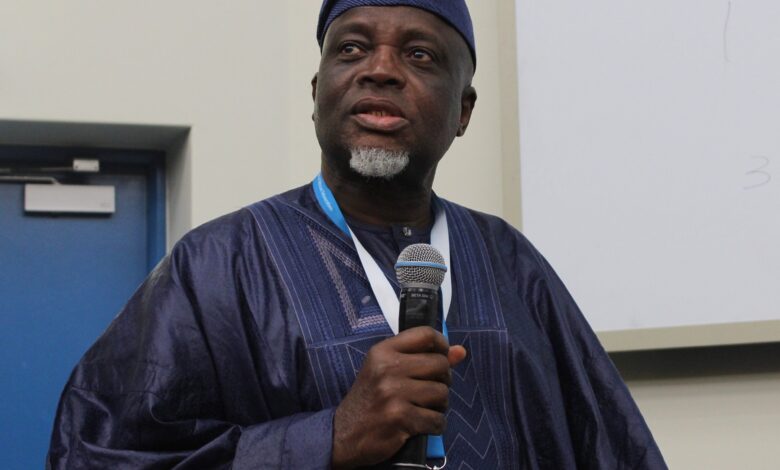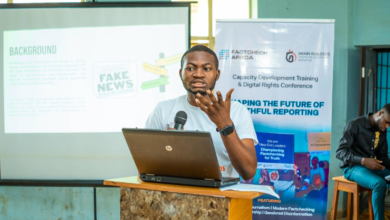Prof. Oloyede Discusses “Artificial Intelligence and the Future of Humanities” at Unilorin Annual Lecture

The annual Lecture at the University of Ilorin, held October 9th 2024, at the University auditorium, titled “Artificial Intelligence and the Future of Humanities”. The discussion explored the intersections of AI with various aspects of society, including academics, technology, religion, and social realities.
Featuring the current Registrar of the Joint Admissions Matriculation Board (JAMB) and the 8th Vice Chancellor of the University of Ilorin, Professor Is-haq Oloyede, led the event, which attracted notable speakers and stakeholders.
While the primary topic was about AI and the future of humanity, Professor Oloyede seamlessly integrated his advocacy for sign language into the broader narrative.
He argued that inclusivity in AI development must extend to those with disabilities, advocating for the adoption of sign language as Nigeria’s second official language to empower the deaf community.
In his lecture, Professor Oloyede asserted, “We must embrace sign language as a second official language to ensure that everyone, regardless of their physical ability, has a voice in our society.”
His remarks set the tone for the event, emphasizing the necessity of making communication accessible to all Nigerians. He also pointed out, “An inclusive society is one that speaks to all its members, and that includes those who communicate through sign language.”
This advocacy is directly linked to the ongoing efforts of organizations like FactCheckAfrica, which focuses on democratizing fact checking tools specifically designed for PWDs, enabling them to access accurate information easily.
FactCheckAfrica’s website now includes several features designed to support inclusivity for Persons with Disabilities (PWDs). The platform offers a text selection to speech feature for the visually impaired, enabling them to listen to analyses easily contents of the publications on the website.
It also incorporates easy navigation aid with its newly improved user experience resources to assist the deaf community and includes a dark mode option for those with visual sensitivities, enhancing readability. These enhancements ensure that everyone, regardless of their abilities, can engage with credible information and participate in the fight against misinformation.
This development aligns perfectly with the broader mission discussed in Professor Oloyede’s lecture, emphasizing the role of technology in creating inclusive and equitable access to information.
Professor Oloyede concluded his lecture by emphasizing the ethical challenges posed by AI technologies. He urged developers, academics, and policymakers to adopt a multidisciplinary approach that combines technical expertise with ethical frameworks. “Technology should serve humanity ethically, responsively and creatively.” he remarked, highlighting the need for responsible AI development that prioritizes human values over mere efficiency.




